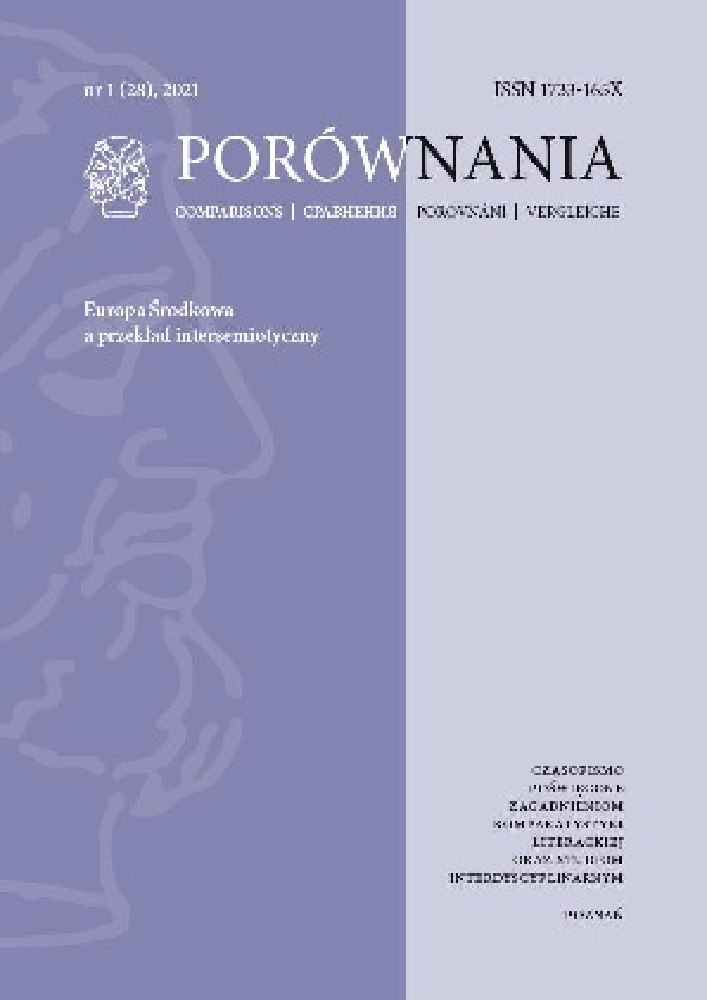Abstract
Poszerzanie pola literackiego. Studia o literackości w internecie by Elżbieta Winiecka is an important, concise summary of almost 20 years of research and artistic practice within the emerging field of electronic literature in Poland and worldwide. Its most important contribution lies in bridging the gap between traditional literary studies
and new paradigms introduced by digital culture. The book’s conclusion is optimistic and goes against the notion of the end of literary studies in the era of post-literature.
Within 10 chapters the author demonstrates how new ways of reading, writing and participating in literary life on the Web open up fascinating challenges for literary studies. In the review, an educational aspect of the book as well as an effort to expand the category of electronic literature by including “traditional” forms informed by the effects of digital communication are also brought forward.
References
Baldwin Sandy (2015), The Internet Unconscious: on the Subject of electronic literature, Bloomsbery, London.
We Descend by Bill Bly, Pathfinders Project Readers Traversal, 01.04.2014, https://tinyurl.com/2mns72u9 [dostęp: 15.10.2020].
Bodzioch-Bryła Bogusława (2019), Sploty: Przepływy, architek(s)tury, hybrydy. Polska e-poezja w dobie procesualności i konwergencji, Wydawnictwo Naukowe Akademii Ignatianum w Krakowie, Kraków.
Kirschenbaum Matthew (2008), Mechanisms: New Media and the Forensic Imagination, MIT Press, Cambridge MA.
Marecki Piotr (2018), Gatunki cyfrowe Instrukcja obsługi, Wydawnictwo Uniwersytetu Jagiellońskiego, Kraków.
Mizerkiewicz Tomasz (2016), The Internet Unconscious Sandy’ego Baldwina a teorie nieświadomości pisania elektronicznego, „Forum Poetyki”, nr 9, s. 138–143.
Pawlicka Urszula (2017), Literatura cyfrowa. W stronę podejścia procesualnego, Wydawnictwo Naukowe Katedra, Gdańsk.
Szczęsna Ewa (2018), Cyfrowa semiopoetyka, Instytut Badań Literackich PAN, Warszawa.
Winiecka Elżbieta (2019), Poszerzanie pola literackiego. Studia o literackości w internecie, Universitas, Kraków.
License
Utwory opublikowane w czasopiśmie „Porównania”, na platformie Pressto należącej do Uniwersytetu im. Adama Mickiewicza w Poznaniu są udostępniane na licencji Creative Commons Uznanie autorstwa - Bez utworów zależnych 4.0 Międzynarodowe (CC BY-ND 4.0)
Tym samym wszyscy zainteresowani są uprawnieni do korzystania z utworów opublikowanych pod następującymi warunkami:
-
uznania autorstwa — czyli obowiązek podania wraz z rozpowszechnianym utworem informacji o autorstwie, tytule, źródle (odnośniki do oryginalnego utworu, doi) oraz samej licencji
-
bez utworów zależnych — remiksując, przetwarzając lub tworząc na podstawie utworu, nie wolno rozpowszechniać zmodyfikowanych treści.
-
brak dodatkowych ograniczeń — nie można korzystać ze środków prawnych lub technologicznych, które ograniczają innych w korzystaniu z utworu na warunkach określonych w licencji.
Uniwersytet im. Adama Mickiewicza w Poznaniu zachowuje prawo do czasopisma jako całości (układ, forma graficzna, tytuł, projekt okładki, logo itp.).
Autor zachowuje prawa majątkowe, ale udziela zgody Uniwersytetowi im. Adama Mickiewicza w Poznaniu na wykorzystanie dzieła. Autorzy tekstów zakwalifikowanych do publikacji proszeni są o wypełnienie podpisanie i przesłanie umowa (PL) agreement (EN)
Agreement for granting a royalty-free license to works with a commitment to grant a CC sub-license





